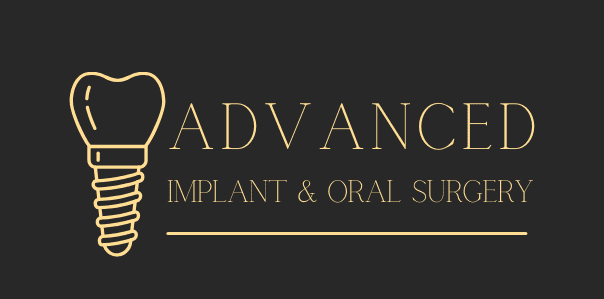Do you have red, bleeding, or irritated gums? Dr. D. Bradley Dean is an expert in the prevention, treatment, and management of gum disease in the Dallas, TX, and Plano, TX, area. As a board-certified Periodontist, he has extensive education and experience with periodontal treatment. Dr. Dean only uses the most state-of-the-art techniques and equipment to treat gum disease.

The Signs and Stages of Gum Disease
Early signs of gum disease may seem subtle, but these symptoms can easily worsen over time. Common signs of gum disease include:
- Sensitive gums
- Bleeding gums
- Red or purple gums
- Deep gum pockets
Contact us as soon as you notice a change in the look or feel of your gums. Early intervention can help prevent the disease from progressing.
The stages of gum disease:
- Gingivitis: If you do not brush or floss your teeth adequately or often, then plaque will build up on your teeth. This build up on the gum line will cause inflammation of the gums. This is typically a sign of the first stage of gum disease, gingivitis. Also known as gum inflammation, gingivitis is the only reversible stage of gum disease.
- Periodontitis: At this stage the infection is so bad, the bone structure that supports your teeth and the soft tissue are damaged. Without prompt treatment, you risk permanent damage such as tooth and bone loss.
- Advanced Periodontitis: By now the fibers, tissue, and bone supporting the teeth are destroyed. Your teeth will begin to loosen and shift. You will need to be treated immediately or your teeth may have to be removed.
Most people with advanced periodontitis will lose their teeth. Dr. Dean will discuss your treatment options, and the best ways to replace your missing teeth.
Gum Disease Treatment in Dallas, TX
Dr. Dean will do a complete periodontal examination. This exam includes the necessary dental X-rays to get a better look at your current oral health. A thorough exam will help Dr. Dean determine the right treatments for your needs.
Dr. Dean can provide gum cleaning, gum pocket surgery, and grafting:
- Scaling and root planing: This is an intensive cleaning where Dr. Dean will clean all surfaces of your teeth thoroughly. This procedure will attempt to remove all traces of plaque and tartar from the gum pockets. Then, root planing helps keep the tooth roots attached to the gums. For some patients, regular scaling and root planing can keep gum disease in check.
- Osseous surgery (gum pocket surgery): Osseous surgery is a pocket reduction surgery. Here, Dr. Dean will make a small cut in your gum tissue to access and remove the bacteria and repair any damage.
- Gum grafting: Gum disease often results in gum recession. The gum grafting procedure will use new gum tissues to cover the exposed tooth root and prevent further recession.
- Periodontal bone grafting: Advanced stages of gum disease can cause bone loss in the jaw. A bone graft will help build back up the bone. We can create enough bone to support dental implants with this common procedure.
Gum Disease FAQs
Learn more about gum disease with answers to these commonly asked questions:
What are the signs of gum disease?
The common signs of gum disease are bleeding gums when you brush or floss, bad breath, red or sore gums, sores and puss on your gums, and receding gums. If you think you might suffer from gum disease, you should schedule an appointment with Dr. Dean.
How can I prevent gum disease?
Having good oral hygiene habits will help you avoid gum disease. Taking care of your teeth and gums at home includes brushing after every meal and before bedtime and flossing once a day.
Remember to see your dentist twice a year. Regular cleanings and exams will help the dentist find early signs of gum disease before they get worse.
Who should treat my gum disease?
While your general dentist knows your dental history and is in charge of your overall dental health, a periodontist should diagnose and treat your gum disease.
We will work closely with your general dentist to assure you are getting the best treatments. When it comes to gum disease, a team approach is best for long-term oral health.
Can I get rid of gingivitis on my own?
Yes. If you notice signs of gingivitis, like red, swollen, or bleeding gums, don’t ignore them. You can reverse gingivitis by brushing your teeth twice a day and flossing daily.
Visiting your dentist regularly for check-ups and professional cleanings is also essential. You should contact your dentist if your symptoms don’t improve after a few weeks.
Will I lose my teeth if I have periodontitis?
If periodontitis is left untreated, it can lead to tooth loss. However, it’s not a guarantee you’ll lose your teeth if you have gum disease. Early detection and proper treatment can halt the progression of the disease and save your teeth. Visit your dentist at least once a year to catch and manage these issues.
Can flossing reverse gum disease?
Flossing is essential to treat gingivitis, or gum inflammation. It helps to prevent the buildup of tartar, which can lead to gum disease. However, if gum disease has progressed to a more advanced stage (periodontitis), professional dental treatment is necessary.
Even in these cases, regular flossing is still an essential part of your treatment plan. It can help prevent further infection. Flossing removes leftover food debris from the teeth and gums. This can prevent plaque from turning into tartar.
If you don’t floss daily, your gums may bleed because of gum inflammation. In most cases, continuing to gently floss and then brush your teeth and gums will lessen this bleeding.
Treat Gum Problems Today
Do your gums bleed when you brush? Are you noticing a change in the fit of your bite? Call Dr. Dean for gum disease treatment in Dallas, TX, at (972) 964-2900. You can also schedule an appointment online.
If you have more questions about gum disease treatment, let Dr. Dean know, and he will be glad to help.
